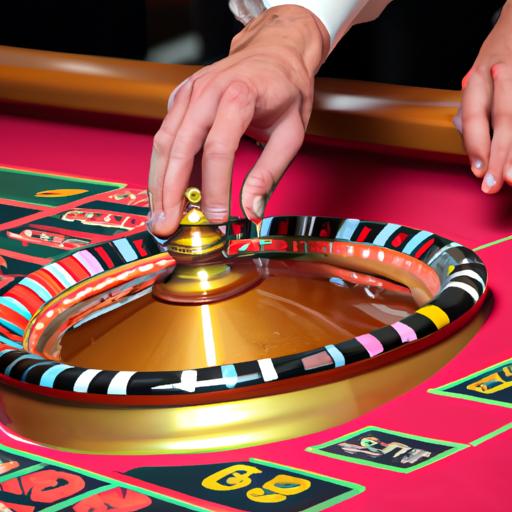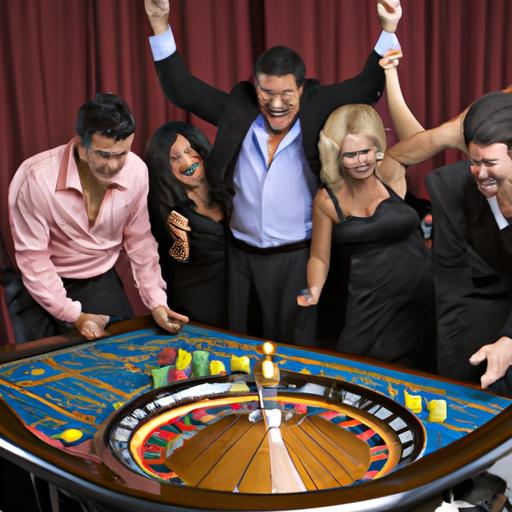Roulette World: Is It All Luck or Is There More to It?
Roulette is one of the most popular casino games worldwide, attracting millions of players every year. The game is simple – players place bets on where they think a ball will land on a spinning wheel. But beneath its apparent simplicity lies a complex game that has divided opinion for centuries: is roulette all luck or is there more to it?
In this article, we’ll explore the world of roulette and examine the rules, history, and science behind this iconic game. We’ll delve into the debate of whether roulette is a game of chance or luck, explore the role of strategy in the game, and ultimately answer the question: is roulette all luck or is there more to it than meets the eye? Let’s get started.
History of Roulette

Origins of Roulette
The history of roulette is fascinating and dates back to the 17th century, when it was first introduced in France. The game was created by Blaise Pascal, a French mathematician and inventor, who was trying to invent a perpetual motion machine. Instead, he created a spinning wheel that would eventually become the roulette wheel we know today.
Evolution of Roulette
Roulette quickly became popular in Europe and eventually made its way to the United States. As the game evolved, so did its rules. The original version of roulette had both a zero and a double zero, which gave the house a significant advantage. However, in the 19th century, the single zero was introduced, which decreased the house edge and made the game more player-friendly.
Over the years, different variations of roulette have emerged, each with their own unique rules and characteristics. Today, there are three main versions of roulette: American, European, and French. While the basic rules of the game remain the same, each version has slight differences in their wheel design and betting options.
Despite its centuries-old history, roulette remains a popular casino game around the world. Its rich history and evolution make it one of the most interesting games to play and learn about.
The Debate: Roulette as a Game of Chance or Luck

When it comes to roulette, there are two opposing views on whether it’s a game of chance or luck. Some argue that roulette is entirely based on chance, while others suggest that there is a certain degree of skill involved and that luck is not the only factor that determines the outcome of the game.
The Argument for Roulette as a Game of Chance
Those who argue that roulette is a game of chance point out that the game’s outcome is entirely random, with no way for players to influence where the ball will land. They argue that roulette is purely a game of luck, with no skill or strategy involved. They also highlight the fact that the house always has an edge in roulette, meaning that the odds are always stacked in favor of the casino.
The Argument for Roulette as a Game of Luck and Skill
On the other hand, some suggest that roulette is not purely a game of chance and that there is a certain degree of skill involved. They argue that skilled players can improve their chances of winning by using specific strategies, such as the Martingale or Fibonacci betting systems. They also suggest that players can increase their odds of winning by choosing specific types of bets, such as betting on even or odd numbers rather than specific numbers.
While it’s clear that roulette is a game of chance to some extent, it’s also evident that there is a certain degree of skill involved. While it’s impossible to predict where the ball will land with 100% accuracy, skilled players can use specific strategies and betting systems to improve their chances of winning. Ultimately, whether roulette is a game of chance or luck depends on your perspective and approach to the game.
The Science Behind Roulette
Roulette may seem like a game of purely luck and chance, but there is a significant amount of science and mathematics involved in the game’s mechanics. The game is based on a spinning wheel with numbered pockets, and a small ball is dropped onto the wheel, eventually landing on one of the numbered pockets. But what determines where the ball lands? Let’s take a closer look.
Mathematical and Statistical Concepts
The outcome of each spin in roulette is determined by a combination of mathematical and statistical concepts. The numbered pockets on the wheel are arranged in such a way to ensure that the ball has an equal chance of landing on any of them. The numbers on the wheel are not arranged in numerical order, but rather in a specific pattern that balances the odds of each possible outcome.
Additionally, there are two main types of bets in roulette: inside bets and outside bets. Inside bets are placed on specific numbers or combinations of numbers and offer higher payouts, but are less likely to win. Outside bets are placed on larger groups of numbers and offer lower payouts but have a higher chance of winning.
How These Concepts Affect the Outcome
The combination of these mathematical and statistical concepts means that the outcome of each spin in roulette is entirely random and not influenced by previous spins. Each spin is an independent event with its unique outcome, and the probability of a particular outcome is the same for each spin.
However, as with any game of chance, there are no guarantees in roulette. The odds are always slightly in favor of the house, meaning that over time, the casino will make a profit. But in the short term, anything can happen, and players can win big or lose everything in a matter of minutes.
Understanding the science behind roulette can help players make informed decisions about their bets and manage their bankroll more effectively. By recognizing that the game is entirely random and based on a combination of mathematical and statistical concepts, players can approach the game with a clearer understanding of the odds and the potential outcomes.
The Role of Strategy in Roulette
Roulette is often seen as a game of chance, with the outcome determined by luck alone. However, many players believe that there are ways to improve their chances of winning by using various betting strategies. In this section, we’ll explore some of the most popular strategies used by roulette players and discuss their effectiveness.
Different Betting Strategies in Roulette
The Martingale Strategy
One of the most well-known betting strategies in roulette is the Martingale system. This strategy involves doubling your bet after every loss, with the aim of recouping your losses and making a profit when you eventually win. For example, if you bet $10 on black and lose, you would then bet $20 on black on the next spin. If you lose again, you would bet $40 on black on the next spin, and so on. The idea is that eventually, you will win and recoup your losses, plus a small profit.
The Reverse Martingale Strategy
The Reverse Martingale strategy is the opposite of the Martingale system. Instead of doubling your bet after a loss, you double your bet after a win. The idea behind this strategy is that you capitalize on winning streaks and minimize losses during losing streaks. For example, if you bet $10 on red and win, you would then bet $20 on red on the next spin. If you win again, you would bet $40 on red on the next spin, and so on.
Effectiveness of Betting Strategies in Roulette
While some players swear by certain betting strategies, others believe they are ineffective in the long run. The truth is that no betting strategy can guarantee a win in roulette, as the game is ultimately determined by chance. However, some strategies can help players minimize their losses and potentially increase their chances of winning in the short term.
It’s important to remember that betting strategies should be used in conjunction with a solid understanding of the game, including the odds and payouts. Ultimately, the best strategy in roulette is to have fun and gamble responsibly, without relying too heavily on any particular betting system.
Conclusion
In conclusion, roulette is a game that has been enjoyed by players for centuries. It is a game that requires an understanding of the rules, an appreciation of the mathematics and statistics behind it, and a willingness to take risks. While some argue that roulette is purely a game of luck, the reality is that there is more to it than meets the eye.
Whether you are a seasoned player or a beginner, understanding the science of roulette and the role of strategy can help you increase your chances of winning. While it is impossible to predict the outcome of each spin, a strategic approach can help you minimize your losses and maximize your winnings.
At the end of the day, roulette is a game that should be enjoyed for what it is – a thrilling and exciting game of chance. So next time you’re at the casino, take a spin on the roulette wheel and see if lady luck is on your side. Who knows, you may just come out a winner.